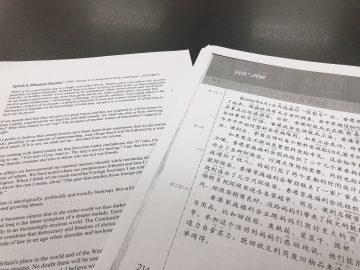
English is everywhere. In our increasingly international society, English has often been considered the primary language used to communicate and educate. With the world undergoing rapid globalization, it almost seems impossible for countries to develop without a population possessing adequate fluency in English.
To follow this globalization, in recent years, more and more regions in Asia have started to push for wider incorporation of English education. Because many of these nations require students to take standardized entrance examinations for higher education, such changes in its education system have certainly affected a wide net of students.
In South Korea, English classes were introduced to third-graders in 1997, in which they were required to take the class twice a week. Similarly, in China, the government made efforts to enhance English education when its capital was selected as the host city for the 2008 Olympic games. For instance, Chinese third-graders were required to take English classes four times a week.
Yet, not all countries succeed. Recently, the Japanese government announced its plan to add writing and speaking components to the pre-existing reading and listening components of the English-language section on its standardized examinations. However, this announcement brought a wave of protests by students all around the country. Protesters raised questions on the credibility of how their tests will be scored. Traditionally, students feel more comfortable with the right-or-wrong, black-or-white approach in answering questions. However, with the addition of an open-ended writing and speaking response, students worry that rifts in grading systems will occur, potentially affecting university acceptances.
Eventually, the Japanese government postponed its plan to modify the standardized examinations. Japan currently ranks low at 53rd in the English proficiency ranking published by EF Education in 2019. This nation, along with other Asian countries like Vietnam and Thailand, has been criticized by educational experts around the globe for its underdeveloped education in English.
English education has entered a new era of development within the Asian region, which is undoubtedly beneficial to highly developed nations like South Korea and China. However, some nations have yet to catch up to the trend. Personally, I am often faced with shock when my peers around me in Japan cannot converse in English or read English menus. There is no denying the fact that a boost in Asian English-language education is necessary to keep up with the rapid development of the world, where English is the global language.
For more information, please visit JapanTimes, EF, and BangkokPost.